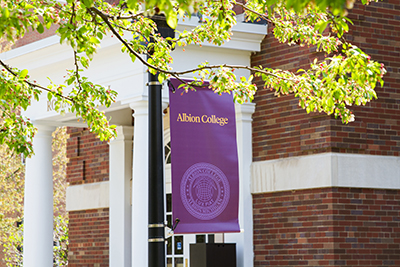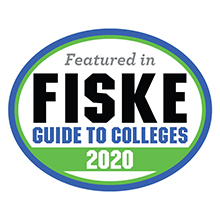Albion Again Listed in Fiske Guide to Colleges
Related Posts
Connect With Us
July 9, 2019

The Fiske Guide to Colleges 2020 features Albion College in its annual authoritative information source for college-bound students and their families.
The publication is the brainchild of Edward B. Fiske, former education editor of The New York Times. It is the 36th edition of the Guide, and while it doesn’t rank the more than 300 colleges and universities it includes, it does offer objective and subjective information on each school.
Fiske features an overall look at Albion’s quality of education and the quality of life students experience here. In particular, the Guide notes Albion’s rich academic history and how it was the first private college in Michigan to have a Phi Beta Kappa chapter. In addition, “professors are accessible and interested, academics are challenging without being overwhelming, and students feel supported and motivated,” according to the Guide.
Albion, the book continues, is competitive but not cutthroat. One student commented that “because of the small-school setting, it is easy to talk to anyone in my class to work together or ask questions.”

As in previous years, Fiske highlights Albion’s leadership development by mentioning the Gerald R. Ford Institute for Leadership in Public Policy and Service, as well as the Carl A. Gerstacker Institute for Business and Management and the Anna Howard Shaw Women’s Center. And, though the city is small, Albion students say there are things to do, like seeing a free movie downtown by showing their valid student ID at the Bohm Theatre box office. A student noted in the profile that Albion College works with the City of Albion to bring in more business and entertainment. And many students volunteer in the community on a regular basis, they pointed out.
“Albion is a residential liberal arts college. Because our students live on campus and many of our faculty and staff members live in or near the City of Albion, there are many opportunities for serendipitous learning,“ said Provost Marc Roy. “That learning might be about a course a student is taking, about issues on campus or in our nation, or advice about personal matters such as life after college. Sometimes the conversations occur on campus after a theatre performance or athletic event or even over dinner at a faculty or staff member’s home. These can lead to important personal relationships that last long after graduation.”